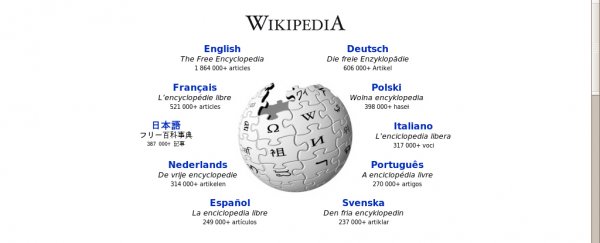When we imagine the future of companies, we often think about digital-age ventures such as Wikipedia and Reddit, which have the noble goals of decentralising power and giving everyone the freedom to create and disseminate knowledge. And that, in theory, is a pretty great idea.
But it turns out that the system doesn't actually work as well as we think it does. In fact, a new study has shown that Wikipedia has drifted from its early ideals to become just another conservative, corporate bureaucracy that's ruled by an elite few - a far cry from the egalitarian haven we all imagined.
For fans of the site, the results might seem surprising, seeing as Wikipedia has avoided establishing a top-down management structure among its contributors and editors. There are certain ranks you can earn, such as 'super-contributor', which come with their own editorial privileges, but power over other contributors wasn't supposed to be one of them.
But researchers Simon DeDeo and Bradi Heaberlin from Indiana University analysed 15 years of Wikipedia data, including more than 5 million articles worked on by tens of thousands of contributers. What they found was that the site is still governed by something called the iron law of oligarchy, which basically means that a ruling power has risen out of the once-decentralised, egalitarian system.
"[It] looks like a university system, or like General Electric, or AT&T," DeDeo told Jennifer Ouellette over at Gizmodo.
The data revealed that although the community has grown rapidly to around 30,000 people, the core 'norms' that influence everything from how people interact to how they select and edit content, were pretty much all established by just 100 users in the early days of the site, mostly pre-2004, which is when the network really started to take off.
Those 'norms' were things like "be neutral", "don't type in all caps" (which can be associated with shouting), and "verify everything", and they were originally intended as loose guidelines that could be tossed out as the site grew and evolved.
But that never happened. The team found that 89 percent of these norms had stayed the same since those early days, and have now taken on an almost "myth-like status", as Ouellette explains. In other words, those early users set the tone, and everyone else felt like they had to follow suit.
"You start with a decentralised democratic system," DeDeo told Gizmodo, in reference to the 'iron law'. "But over time you get the emergence of a leadership class with privileged access to information and social networks."
Meanwhile, the team found that the four general 'neighbourhoods' that Wikipedia started with - article quality; content policy; collaboration; and administrators - generally became more and more separate from each other, something that's known as 'decoupling' in network science.
"Taken together, these results suggest that the evolution of Wikipedia's norm network is akin to bureaucratic systems that predate the information age," the researchers write in the journal Future Internet.
This isn't the first time researchers have found the evolution of Wikipedia to be lacking. As Ouellette reports, a paper published at the start of this year in Physical Review E showed that a small number of Wikipedia editors exert major influence over the site, and that this could actually be hurting the network's future prospects.
"There are already reports that the growth of Wikipedia is slowing down, and our observation indicates that this will continue unless something is done about it," lead author of the January study, Jinhyuk Yun, told Physics Focus at the time.
Why does all of this matter? Understanding how systems organise themselves without any so-called traditions or rules is going to be hugely important when we consider the economy of the future, which will likely be more autonomous and decentralised - in theory, at least.
"I think what we're doing is investing research into a problem that, 200 years from now, could be the biggest problem in the world," DeDeo told Gizmodo, "if we don't destroy ourselves first."
Buck up, guys, the future is looking… bright?
